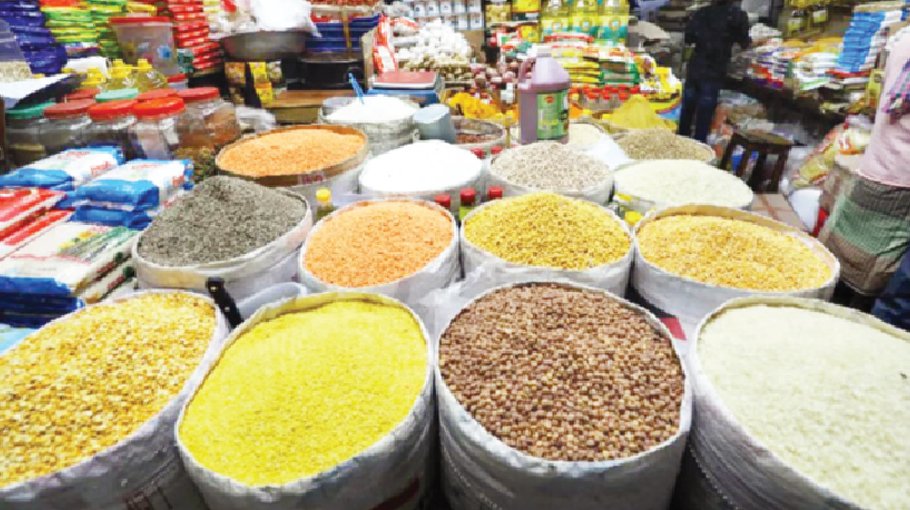Prices still outrageous
Govt steps look futile as traders want to line their pockets

Despite the government’s strong measures to contain the prices of essential commodities, the price continue to soar, much to the sufferings to the consumers.
After assuming office for the fourth consecutive term, Prime Minister Sheikh Hasina highlighted three priorities, including cubing the prices of essentials and directed her council of ministers to address the problem.
Being asked, ministers have also held series of meetings with stakeholders to identify the reasons beyond the price spiral.
Even, the law enforcement agencies are conducting drives against the extortionists and hoarders. But the problem still lingers as prices of essentials mark sharp rise even in peak season.
But the drives against price hike look futile as traders defy the govt orders to line their pocket.
The United Nations Food and Agriculture Organisation recently reported that overall, world food commodity prices fell 13.7 per cent in 2023 compared to the previous year.
But the scenario is different in Bangladesh. Onion, one of the key kitchen items, sold at Tk 110 to Tk 120 on Thursday although it sold at less than Tk 100 last week.
Traders blame extortion on highways and identified dollar crisis and conflict in the Red Sea for the price spiral of goods.
Though the prices of essentials have dropped globally, the price of dollar has not fallen in Bangladesh. The import cost has obviously risen due to the war. As a result, Bangladesh is not getting the facilities right now, they say.
Amid such a condition, the National Board of Revenue has withdrawn customs tariff and reduced regulatory duty on rice, sugar and dates and lifted value added tax on edible oil to boost supply and contain prices of the essentials during the month of Ramadan, beginning in March.
The 25 percent customs duty for rice import has been removed and regulatory duty slashed to 5 percent from 25 percent, according to a notification published by the NBR on Thursday. In a separate notice, the NBR also withdrew VAT on edible oil. It reduced the specific duty for import of raw sugar to Tk 1,000 per tonne from Tk 1,500 earlier.
The NBR also cut import duty for dates, mostly consumed during the fasting month of Ramadan, to 15 percent from 25 percent. The new rates have already become effective.
Consumers Association of Bangladesh president Ghulam Rahman blamed the traders for their motive of making maximum benefit.
“The government has taken some measures to address the price spiral. But it will take some time,” he opined.
Asked about the fall of price of commodities in global market, he said though world food commodity prices fell last year compared to the previous year, the exchange rate of dollars in the country is still high.
Over the NBR’s lifting of VAT and tax, he said, “If the chain of supply of goods improves, then the consumers will get the benefit.”
State minister for commerce Ahasanul Islam Titu on Thursday said new prices for edible oil and sugar would be fixed within the next week following the exemption of import duties.
He also urged the producers and importers to release goods that are on transit and market them quickly so that facilities reach the consumers.
As part of the government’s move, food ministry has started mobile drives against unscrupulous traders from January 19.
At the beginning, the authorities issued a note of verbal warning to traders. However, on the fifth day, they collected about Tk 22 lakh in fine from the traders.
On January 28, the food ministry conducted mobile court drives in various markets across eight districts. During the drives, 15 organizations were penalised, resulting in a collection of fines totaling Tk 51,700.
Similarly, on January 25, a total of 31 organizations were fined and a total of Tk 635,500 were collected as fine. Similarly, Tk 7,85,000 of fines were collected on January 31.
Around Tk 3,1,04,500 fine were collected from different traders across the country during drives till February 8.
On the other hand, the Directorate of National Consumers’ Rights Protection (DNCRP) is also conducting a drive against illegal hoarders based on consumer complaints. Since its inception, the directorate has collected a fine of more than Tk 120 crore so far.


